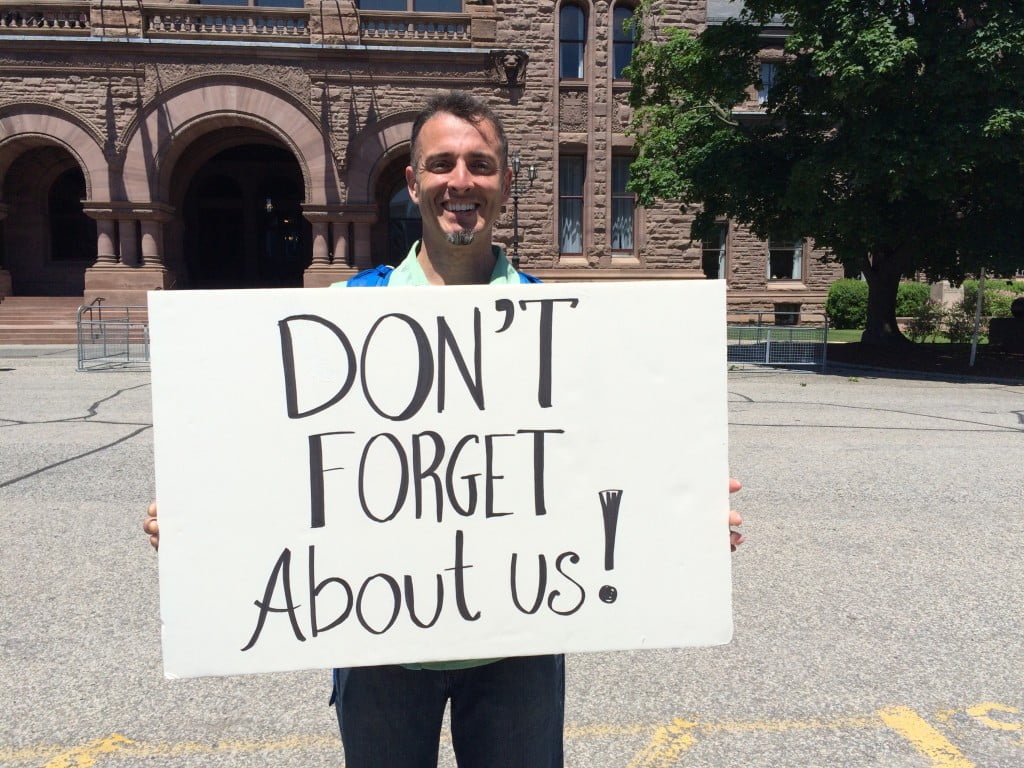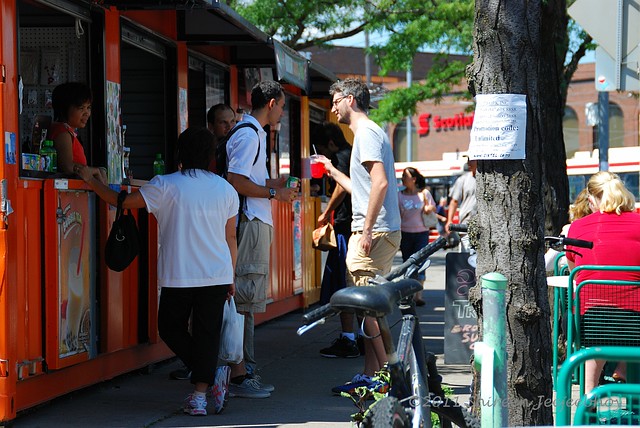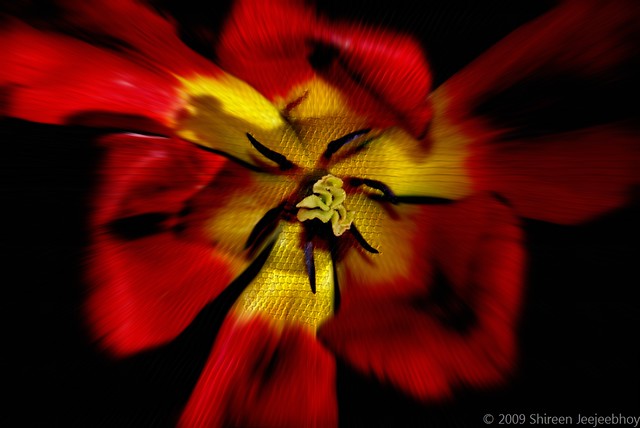My first blog was a political one. Hope in the form of writing fuelled it. I titled it “talk talk talk” because, despite my brain injury putting dampers on my thoughts and talking, I like to talk, debate, engage. Maybe that’s why my first followers thought I was male then most bailed once I outed myself.
Being able to write about politics — and then later tweet on them — gave me a sense of agency, of control over one aspect of a life that was not under my control. Brain injury, health care systems, the insurance mill, other people controlled almost every aspect of my life.
But that began to change gradually.
I began to gain personal agency as my brain injury healed. I didn’t have to use the alpha session on my audiovisual entrainment (AVE) device to spark my imagination into life. It sometimes sparked on its own, in a shadow of my old self. I didn’t have to get door-to-door transportation and tell my legs to keep moving in order to walk to a destination and/or take Toronto’s transit system, the TTC. I no longer had my brain dictating reaction to a threat to my person, agency, independence: my prefrontal cortex, after years and years of brain biofeedback training and discovering AVE sessions that worked better to calm injured neurons, had gained ascendancy over brain injury anger.
Writing on politics or animals or television shows continued to feel good; then when I was allowed out from anonymity, I expanded into Twitter, this blog, books. Recovery slogged upward; writing kept me breathing. Even when shock slayed my blogs, I kept up on Twitter. Even when my neurodoc took away my hope for a full recovery and a regained social life, I kept on tweeting. I somehow even managed to pull book manuscripts out of the gasping recesses of my brain every November for NaNoWriMo.
But
- the politics of meanness disguised as speaking up for the little guy;
- my worsening financials because highly educated people doing financially well in life resent taxes more than they want to help their fellow citizens out, never mind their family member, in accordance with their declared faith and values;
- no remorse for the selfish, petty, resentful way people have treated me and instead a double downing of it;
- justification for siding with the bullies, whether in politics or personal life, and not standing up for the isolated, the hurting, the permanently injured through no fault of their own in order to lift them back up into purpose-filled lives;
- the health care system through doctors and bureaucrats not funding nor adopting neuroplastic models of therapy for any kind of brain dysfunction that would restore injured or malfunctioning neurons better than the current neurochemical, neurosurgical, or strategies-only model;
- the continual ignoring of how inaccessible the TTC is, the city of Toronto is, by both politicians and the Ontario Human Rights Commission;
- people who consider themselves good threatening the lives of other humans they consider bad because they’re walking across roads or along sidewalks legally;
- people who consider themselves good choosing to act in ways that threaten the health of visually impaired, those on wheels, who have visual-spatial or balance issues, etc.;
- the latent polite racism of progressive Canadians revealing itself in its reaction to the only non-white Federal party leader and the first one ever elected as well as to an Indigenous female politician who stood up to the white male Prime Minister;
- the disenfranchisement of women in purdah* by white Canadian women declaring these non-whites have freedom of choice when the entire point of purdah is to block women from choice;
- the endless parade of white men being elected as city, provincial, federal leaders as if the fleeting appearance of women on the scene was anathema and must smacked down while at the same time one party declares a man to be the same as a woman leading the party as if declaring himself pro-choice, appointing the first 50/50 cabinet, and throwing out two women who challenge him makes him so;
- and entering another federal election with First Past the Post because one white man had decided against the wishes of a cross-country consultation to cancel his party’s electoral reform promise and all his female supporters who know, without a doubt that without proportional representation they will never achieve parity in politics, fell into line because, well, he’s a feminist, right?
— has made me want to shut the doors of my home and never leave again.
I usually experience a significant drop in my energy during September, but this doesn’t feel like the usual. This feels like the choices people make as individuals and as a society to resent those who struggle, to fear the injured as if by fearing they will not become like us, to disempower those not like them, to steal hope for having someone come alongside to support one into a purpose-filled life — steering me toward the quicksand of despair and shoving me into it hard.

Without electoral reform, we will never have a Parliament of collaboration but continue the state of oneupmanship. Your side will never always win. Eventually if you’re a winner now, you will lose.
*Pardah or purdah is a religious and social practice of female seclusion prevalent among some Muslim and Hindu communities in South Asia. It takes two forms: physical segregation of the sexes and the requirement that women cover their bodies so as to cover their skin and conceal their form. (From Wikipedia)





